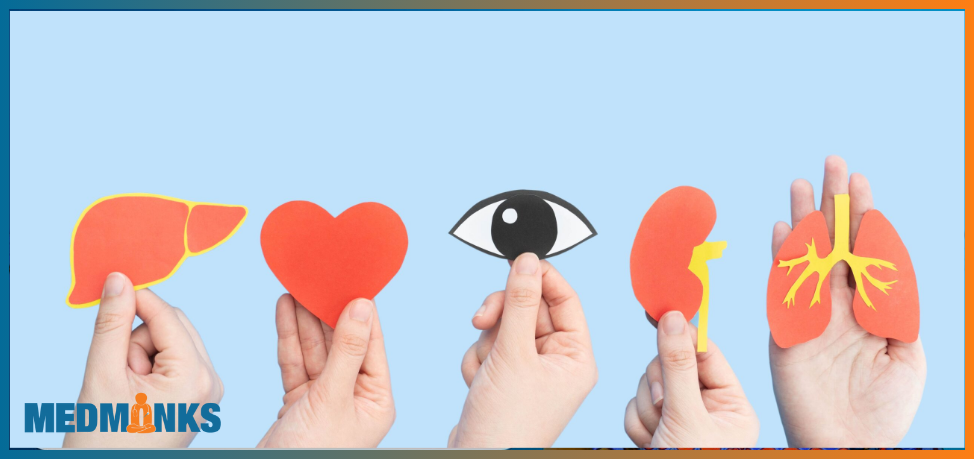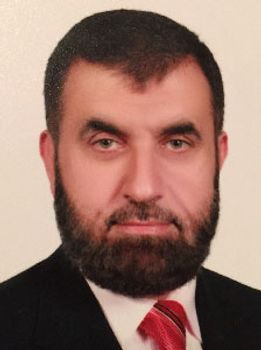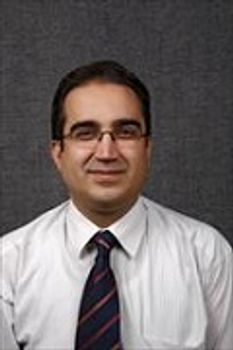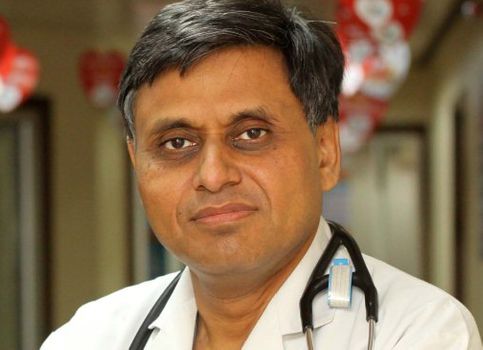Organ Donation Rules & Regulations in India

Transplantation of Human Organ Act was signed in 1994 in India, with an aim to regulate the removal, storage and use of human organs for medical purposes only, while preventing the commercial dealing/ trafficking of the human organs.
The first amendment of the Act was passed in 2011 by the parliament, which was modified in 2014.
Some of the main provisions of the Act include:
A. Brain death identified in the form of death (donor). The processes and criteria for certifying brain death are defined in Form 10.
B. Allows transplant surgery of tissues and organs from cadavers (after a brain or cardiac death) and living donors (certain organs)
C. Involvement of advisory and regulatory bodies for monitoring the transplant activity with their defined constitution.
(i) Appropriate Authority (AA): is responsible for inspecting and granting registration to hospitals in India for transplantation enforcing the required standards for the medical center, by conducting regular inspections for examining the quality of services. It might conduct investigations for complaints regarding any breach in the Act’s provisions. They have the power of civil court for summoning any individual, requesting documents and issuing search warrants.
(ii) Advisory Committee: consists of experts who assist and advise the appropriate authority (AA).
(iii) Authorization Committee (AC): is responsible for regulating living donor transplants by reviewing each case for ensuring that living donors are not exploited for monetary exchange and for preventing commercial dealings in organs. Appeals against AC’s decision can be made to the central or state government.
(iv) Medical board (Brain Death Committee): includes a panel of doctors who are responsible for providing brain death certification.
D. Living donors can be classified via the following:
(i) A near-relative (parents, siblings, spouse, children, grandchildren) need to take permission from the surgeon-in-charge of the transplantation center for donating his/ her organ.
(ii) A non-related donor has to take permission from the Authorization Committee established by their state for their organ. International patients receiving treatment in India, need to get a certificate from their Authorization Committee to use organ of a non-related donor.
E. Swap Transplantation: In some cases, a near-relative living donor can be medically incompatible with the patient, under such circumstances the pair is allowed to undergo a swap transplant with a different related unmatched pair of donor/recipient.
F. Authorization for brain death patient’s organ donation:
(i) Might be given by the person himself/ herself before death or
(ii) By the person who has the legal possession of their body. A surgeon shall question the patient and relatives of every person admitted in the ICU if they have any prior authorization. If not, the patient is made aware of the donation.
(iii) The authorization process for tissue or organ donation from all unclaimed bodies is outlined.
G. Organ retrieval permitted from any medical center with ICU facility registered by the appropriate authority, that has proper infrastructure, human resources and equipment to diagnose and maintain the organs or brain-stems of a dead person can retrieve and transport organs. They can also register as an organ retrieval center.
H. Cost of organ retrieval, donor management, transportation & preservation is borne by the recipient, healthcare center, government, NGO, not by the donor or his/ her family.
I. Operations done for organ donation in medico-legal cases are defined for avoiding jeopardizing determination of the death cause and delay in organ retrieval.
J. Manpower & resources required for the registration of a medical facility as a transplant center are outlined.
K. Infrastructure, machine requirements, others guidelines and standard for operating procedures for tissue banks are also outlined.
L. Qualifications of transplantation surgeons, tissue and cornea retrieval technicians are defined.
M. Appointment with transplant coordinators is mandatory in all transplant surgery centers.
N. Non-governmental organisations working in the concerning sector of organ retrieval, storage and transplantation need to get registered.
O. Hospitals should follow the guidelines set by the central government and register under NOTTO (National Organ & Tissue Transplant Organisation), ROTTO (Regional Organ & Tissue Transplant Organisation) and SOTTO (State Organ & Tissue Transplant Organisation).
NOTTO’s Website www.notto.nic.in. The organization defines the Manner of establishing National or Regional/ State Human Organs and Tissues Retrieval & Storage Networks while stating their functions clearly.
P. The central government is responsible for maintaining the registry of the recipients and donors for organs and tissues.
Q. Penalties for unauthorized organ removal, monetary exchange and organ trafficking have been made stringent to prevent such activities.
The following forms have outlined the above rules in detail:
Form 1: Organ Donation from a Near-relative with their consent
Form 2: Organ Donation from the Spouse their consent
Form 3: Organ Donation from non near-relative donor with their consent
Form 4: Donor’s psychiatrist evaluation
Form 5: HLA DNA profiling of the donor
Form 7: Self consent of a deceased donation
Form 8: Organ donation consent from family (applicable for minors)
Form 9: Organ donation consent from unclaimed bodies
Form 10: Form brain death declaration
Form 11: Joint transplant application by a pair of donor/recipient
Form 12: Registration of medical center for organ transplantation
Form 13: Registration of healthcare center for organ retrieval
Form 16: Grant of registration
Form 17: Renewal of organ transplantation registration
Form 18: Decision by medical center authorization committee
Form 19: Decisions made by the district authorization committee
Form 20: Verification of Domicile for non-near-relative
Form 21: Letter from Embassy
Click here to explore these forms: https://www.notto.gov.in/download-forms.htm
FAQs by Organ Donors
What are the requirements for becoming a living organ donor?
- A living organ donor candidate:
- Should be between 18 to 65 years of age
- Should not be afflicted with any type of major psychiatric or medical illness
- Should not be pregnant
- Should not be overweight (people can lose their weight to become potential donors)
- Should be willing to make few lifestyle changes, like quit smoking for at least 6 weeks before the operation
- Must understand all the risks of surgery
Is the organ donation form or organ donation card legally valid in India?
Both the form and card for organ donation are legally accepted by hospitals in India. However, even with legally valid documents, Indian surgeons will not remove any organ from the potential donor’s body, if their close friend or relative objects. In the event of organ transplantation, the authorization form will be obtained from the relatives (donor) by the hospital before their organs are removed.
If a sick patient at the hospital signs the organ donation form, will his/her doctor stop their attempts of saving him/ her?
The primary goal of every medical professional is to save the patient. They will try their best to save their patients by curing their disease. Organ removal of a patient will not be considered until they are dead.
Do donors need to undergo any tests in order to ensure that their organs are healthy for the donations?
Potential organ donors don’t carry out any tests when they fill and sign the form. Before the surgeons ask for an organ donation, they will run some tests on them to make sure that they are fit for the transplant procedure. In general, patients with cancer, infections, hepatitis B virus and other types of HIV disease are considered unsuitable donors.
What types of organ transplant surgeries are currently performed in India?
At present Indian Organ Transplant Hospitals offer treatment facilities for kidney, liver, bone, bone marrow, heart, and skin transplantation.
What is a waiting list?
The waiting list for organ donation is a council designed by the government that is connected to all the hospitals in the country, listing names of patients who require organ transplantation. Once the patient’s name is added on the list, he/she is given an update whenever an organ is available that fits their requirements.
Why is a waiting list so long?
The low organ donation rates are responsible for the long waiting lists around the world. The organ donation rate in India is very low compared to the patients. This is the main reason why the government of India has legally restricted international patients from getting organs of Indian citizens.
Why is India’s Organ Donation Rate so low compared to other developed countries?
The cultural ideas followed by Indian people makes them want to preserve the 'complete body' of their relatives after their death, and the deceased’s family prevents all causes of 'mutilation', hence avoid donating their organs.
A recent survey conducted in Asia revealed that relatives of the deceased were reluctant to allow the doctors or give consent in place of their relative as they are unaware of his/her wish. Organ donation registry is an effective solution to this problem, but there are still very few people in India who practice this.
What will happen if my relative wants to donate their organ to me, but they are not a 100% match?
Advancements in the technology have allowed surgeons to perform organ transplant surgeries even when the patient and the donor are not a match. This has helped in reducing the number of deaths caused because of the lack of matching organ donors.
How does a doctor determine brain-death?
According to the THO (Transplantation of Human Organs) Act 1994, for certifying a person’s death four medical experts have to check the patient twice in a duration of six hours before the deceased patient’s organs can be considered for surgical removal. The following board experts are responsible for certifying the patient’s death:
– An RMP (Registered Medical Practitioner) who is held in charge of the medical center
– An independent RMP who is nominated by an Appropriate Authority
– A neurologist/ neurosurgeon. In the absence of a neurologist/ neurosurgeon, the surgeon physician, intensivist or anesthetist from the panel of names that are approved by the Higher Authority
– The RMP who was providing the treatment to the deceased
Will my information provided to the hospital’s transplant team remain confidential?
Yes. It is important for the medical centers that donors feel comfortable disclosing the requested information. Anything revealed or discussed in the course of this consultation or the donor evaluation is kept confidential between the transplant team and the donor.
FAQs by Organ Recipient
Can international patients find an organ donor in India?
International patients cannot claim the organ of an Indian citizen. They are prohibited using organs of local citizens. Medical tourists have to bring their own donors, who should be directly related to them, preferably, a relative or a friend.
Are all types of organ transplant surgeries performed in India?
The legal status of any surgical procedure is subject to change in India at any time, based on the government instructions. Patients are requested to contact the hospital or seek Medmonks team’s assistance before coming to India for any type of organ transplant surgery.
Can I get a living donor for all types of organ transplant surgeries?
No, living donors are only considered for certain organs, like kidneys, parts of liver, bone, and bone marrow. This is because, people can either redevelop or can live without one of the organs, once it has been removed from their body.
Doctors pledge to save lives, using living donors for an organ like a heart can result in the death of the donor, which is something the doctors do not stand by.
Is it necessary for my donor to be related to me?
No, it is not necessary for the recipient to be related to their donor. The relationship between recipient and donor also doesn't affect the doses of anti-rejection drugs the recipient requires after transplantation.
For more information, go to Medmonks website.





